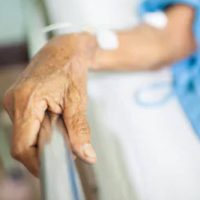Bed Sores And Nursing Home Negligence

Nursing home abuse or neglect can take many different forms in both New Jersey and Pennsylvania, and some signs of abuse and neglect can be more difficult to spot than others. With physical abuse, it may be obvious that a senior in a Pennsylvania or New Jersey nursing home has cuts, bruises, or burn marks. Yet with passive neglect, the signs and symptoms may be more complicated and hard to identify. Indeed, with passive neglect, a facility and its staff members are not engaged in any acts designed to harm the resident intentionally. However, as a result of a lack of care, the resident can suffer serious injuries like falls and infections. Bed sores are one common sign of passive neglect in nursing homes. What should you know about bed sores? Our Pennsylvania and New Jersey nursing home neglect lawyer can provide you with more information.
What Are Bed Sores?
Bed sores are also known as pressure ulcers or decubitus ulcers. According to the Mayo Clinic, these are “injuries to skin and underlying tissue resulting from prolonged pressure on the skin.” In most cases, bed sores will develop on parts of the skin that cover “bony areas of the body, such as the heels, ankles, hips, and tailbone,” but it is important to know that bed sores can appear almost anywhere on the body.
The nursing home residents who are at greatest risk of developing a bed sore are those with limited mobility — residents confined to wheelchairs or to beds, for example.
Types of Bed Sores
As the Mayo Clinic clarifies, bed sores “can develop over hours or days,” and these injuries worsen when they are not treated quickly and effectively. Common signs of bed sores can include, for example:
- Changes in the color or texture of a person’s skin;
- Swelling in an area;
- Pus-like drainage in a particular area of the skin;
- Part of the skin that feels warmer to the touch than other areas or colder to the touch than other areas; and
- Skin areas that are tender or painful to the touch.
The severity of bed sores develops on how deep they are and how much damage they have caused. Stage 1 bed sores are the least serious and can usually be treated without additional medical care. Stage 2 bed sores have already affected two layers of the skin and require medical care. Stage 3 and Stage 4 bed sores are especially dangerous, and Stage 4 bed sores can even affect a person’s muscles, tendons, and bone. If left untreated or if treated improperly, bed sores can result in a resident’s death.
Contact a Pennsylvania and New Jersey Nursing Home Negligence Lawyer
While bed sores might not immediately seem like a sign of nursing home neglect, it is essential to know that bed sores usually develop — and certainly serious bed sores — when a nursing home resident is not receiving sufficient care. An experienced Pennsylvania and New Jersey nursing home abuse lawyer can evaluate your case for you today and can determine whether the nursing home may be liable for harm. If so, our firm can help you to seek financial compensation by filing a claim. Joseph Monaco is a New Jersey and Pennsylvania personal injury lawyer serving Atlantic County, Burlington County, Cape May County, Camden County, Cumberland County, Gloucester County, Mercer County, Middlesex County, Ocean County, Salem County and all of South Jersey.
Source:
mayoclinic.org/diseases-conditions/bed-sores/symptoms-causes/syc-20355893
